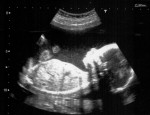 What does the Canadian Charter of Rights and Freedoms say about abortion?
What does the Canadian Charter of Rights and Freedoms say about abortion?
–
–
There is nothing in the wording of the Canadian Charter of Rights and Freedoms to indicate a constitutional right to abortion. And although claims are often made that the Supreme Court of Canada recognized a constitutional right to abortion in its 1988 Morgentaler decision,1 that is an incorrect understanding of what the Court decided.
As Osgoode Hall Law Professor Shelley A.M. Gavigan wrote in an essay published shortly after the 1988 decision, “The Supreme Court’s decision, profound as it was, did not create a right to abortion for Canadian women, nor did it offer any resolution of the abortion issue.” 2
And Associate Professor of Law at University of Ottawa, Daphne Gilbert, quoted in an article in The Epoch Times, says, “The Morgentaler decision didn’t say a woman has a constitutional right to abortion, it didn’t go that far –pro-choice is not a legal question, it is a social/cultural issue.” According to this article, Daphne Gilbert who “specializes in Charter rights, says the Morgentaler case didn’t go as far as the 1973 U.S. Supreme Court decision in the Roe v. Wade case, which granted the constitutional right to abortion and subsequently changed laws in 46 states.” 3
–
What did Madam Justice Wilson say?
As discussed in detail here, only one of the seven judges, Justice Bertha Wilson, recognized a “right to abortion” founded on the Charter’s section 7 right to “liberty,” and only in the early stages of pregnancy.4
As Political Science Professor Janine Brodie wrote in an essay published shortly after the 1988 decision:
The majority of the judges (5 of 7) had decided that Section 251 violated Canadian women’s constitutional rights to the security of the person. Only one, however, Madam Justice Bertha Wilson, declared that women had a right to an abortion in the early stages of pregnancy. Moreover, all of the majority decisions conceded the state’s interest in protecting the foetus. 5
More recently, in the aftermath of much media coverage across the country regarding an erroneous understanding of the 1988 Morgentaler decision, former PEI Supreme Court Justice Gerard Mitchell in a letter published in Charlottetown’s newspaper, The Guardian, explained:
None of the seven judges held that there was a constitutional right to abortion on demand. All of the judges acknowledged the state has a legitimate interest in protecting the unborn. Even Madam Justice Wilson, who rendered the most liberal opinion in favour of a woman’s rights, advocated an approach to abortion that would balance those rights with the state’s interest in protecting the unborn. 6
Madam Justice Wilson felt that at some point later in the pregnancy, the state’s interest in the protection of the fetus becomes “compelling” and would justify Parliament enacting legislation to restrict abortion in order to protect the fetus:
In the early stages the woman’s autonomy would be absolute; her decision, reached in consultation with her physician, not to carry the foetus to term would be conclusive. The state would have no business inquiring into her reasons. Her reasons for having an abortion would, however, be the proper subject of inquiry at the later stages of her pregnancy when the state’s compelling interest in the protection of the foetus would justify it in prescribing conditions. The precise point in the development of the foetus at which the state’s interest in its protection becomes “compelling” I leave to the informed judgment of the legislature which is in a position to receive guidance on the subject from all the relevant disciplines. It seems to me, however, that it might fall somewhere in the second trimester. (R v Morgentaler at p. 183)
–
What did Chief Justice Dickson (and Justice Lamer concurring) say?
The following comment made by the Chief Justice Dickson is often quoted by those claiming that the Morgentaler decision recognized a constitutional right to abortion:
Forcing a woman, by threat of criminal sanction, to carry a foetus to term unless she meets certain criteria unrelated to her own priorities and aspirations, is a profound interference with a woman’s body and thus a violation of security of the person. (R v Morgentalerat pages 56-57)
However, the Chief Justice went on to say:
Section 251, therefore, is required by the Charter to comport with the principles of fundamental justice.
This is important, because the government is allowed to infringe on a person’s section 7 Charter rights if the infringement is in accordance with “fundamental justice.” Section 7 of the Charter states:
7. Everyone has the right to life, liberty and security of the person and the right not to be deprived thereof except in accordance with the principles of fundamental justice.
As discussed in detail here, the Chief Justice found that the violation to security of the person was not in accordance with fundamental justice because the defence created in section 251 of the Criminal Code was potentially so difficult to obtain as to be in effect “illusory”–it was not because of any recognition of a right to abortion as Justice Wilson had found. The Chief Justice explains how the defence was “illusory” for many women as follows:
Any infringement of the right to life, liberty and security of the person must comport with the principles of fundamental justice. These principles are to be found in the basic tenets of our legal system. One of the basic tenets of our system of criminal justice is that when Parliament creates a defence to a criminal charge, the defence should not be illusory or so difficult to attain as to be practically illusory.
The procedure and restrictions stipulated in s. 251 for access to therapeutic abortions make the defence illusory resulting in a failure to comply with the principles of fundamental justice. A therapeutic abortion may be approved by a “therapeutic abortion committee” of an “accredited or approved hospital”. The requirement of s. 251(4) that at least four physicians be available at that hospital to authorize and to perform an abortion in practice makes abortions unavailable in many hospitals. The restrictions attaching to the term “accredited” automatically disqualifies many Canadian hospitals from undertaking therapeutic abortions. The provincial approval of a hospital for the purpose of performing therapeutic abortions further restricts the number of hospitals offering this procedure. Even if a hospital is eligible to create a therapeutic abortion committee, there is no requirement in s. 251 that the hospital need do so. Provincial regulation as well can heavily restrict or even deny the practical availability of the exculpatory provisions of s. 251(4). (R v Morgentaler at p. 33)
And because the Chief Justice found the law to be unconstitutional on the grounds it was “manifestly unfair” due to the many barriers it erected for women who would actually qualify for an abortion, thus making the defence “illusory,” he expressly states it is not necessary to decide if a substantive right exists (i.e. a right to abortion):
Parliament must be given room to design an appropriate administrative and procedural structure for bringing into operation a particular defence to criminal liability. But if that structure is “so manifestly unfair, having regard to the decisions it is called upon to make, as to violate the principles of fundamental justice”, that structure must be struck down. In the present case, the structure — the system regulating access to therapeutic abortions — is manifestly unfair. It contains so many potential barriers to its own operation that the defence it creates will in many circumstances be practically unavailable to women who would prima facie qualify for the defence, or at least would force such women to travel great distances at substantial expense and inconvenience in order to benefit from a defence that is held out to be generally available.
I conclude that the procedures created in s. 251 of the Criminal Code for obtaining a therapeutic abortion do not comport with the principles of fundamental justice. It is not necessary to determine whether s. 7 also contains a substantive content leading to the conclusion that, in some circumstances at least, the deprivation of a pregnant woman’s right to security of the person can never comport with fundamental justice. Simply put, assuming Parliament can act, it must do so properly. (R v Morgentaler at pp. 72-73) (emphasis added)
–
What did Justice Beetz (and Justice Estey concurring) say?
Justice Beetz says directly that it is unnecessary to decide if a “right to abortion,” founded on the Charter 7 right to liberty, exists because there are other reasons that invalidate section 251 (reasons having to do with delays caused by the procedural requirements of the law which increased the risk to the woman’s health, thus violating her Charter right to security of the person, as discussed in detail here). He does discuss a “right to abortion,” but in a hypothetical sense only, and even then, he said that if such a right existed, some limits would still be justified in the interests of protecting the fetus. Nevertheless, he says it is not necessary to decide the question of a “right to abortion”:
I do not believe it to be unreasonable to seek independent medical confirmation of the threat to the woman’s life or health when such an important and distinct interest hangs in the balance…..
The assertion that an independent medical opinion, distinct from that of the pregnant woman and her practising physician, does not offend the principles of fundamental justice would need to be reevaluated if a right of access to abortion is founded upon the right to “liberty” in s. 7 of the Charter. I am of the view that there would still be circumstances in which the state interest in the protection of the foetus would require an independent medical opinion as to the danger to the life or health of the pregnant woman. Assuming without deciding that a right of access to abortion can be founded upon the right to “liberty”, there would be a point in time at which the state interest in the foetus would become compel- ling. From this point in time, Parliament would be entitled to limit abortions to those required for therapeutic reasons and therefore require an independent opinion as to the health exception….
As I indicated at the outset of my reasons, it is nevertheless possible to resolve this appeal without attempting to delineate the right to “liberty” in s. 7 of the Charter. The violation of the right to “security of the person” and the relevant principles of fundamental justice are sufficient to invalidate s. 251 of the Criminal Code. (R v Morgentaler at pp. 112-113) (emphasis added)
–
What did Justices McIntyre and La Forest, in dissent, say?
Speaking for the minority, Justice McIntyre found no support for a constitutional right to abortion:
Save for the provisions of the Criminal Code permitting abortion where the life or health of the woman is at risk, no right of abortion can be found in Canadian law, custom or tradition and the Charter, including s. 7, does not create such a right. Section 251 of the Criminal Code accordingly does not violate s. 7 of the Charter.
…The proposition that women enjoy a constitutional right to have an abortion is devoid of support in either the language, structure or history of the constitutional text, in constitutional tradition, or in the history, traditions or underlying philosophies of our society.
Historically, there has always been a clear recognition of a public interest in the protection of the unborn and there is no evidence or indication of general acceptance of the concept of abortion at will in our society. The interpretive approach to the Charter adopted by this Court affords no support for the entrenchment of a constitutional right of abortion. (R v Morgentaler at pp. 38-39)
–
Conclusion
One judge found a constitutional right to abortion in the early stages of pregnancy only: Madam Justice Wilson
Two judges found there was no constitutional right to abortion: Justices McIntyre and La Forest
Four judges found it unnecessary to decide whether a constitutional right to abortion exists: Justices Dickson, Lamer, Beetz and Estey
–
References:
- Most notably, Liberal leader Justin Trudeau created a firestorm of controversy when he said all new candidates running for the Liberal party must be willing to vote “pro-choice” on any future abortion legislation. “Since 1988, the Supreme Court of Canada has affirmed that a woman’s right to choose in this matter is part of her fundamental rights and freedoms….And the Liberal party is the party of the Charter. And Canadians need to count on the fact that Liberals, with our votes, will defend women’s rights and Charter rights.” Abortion issues trail Harper, Trudeau as each take different positions, by Jennifer Ditchburn, The Canadian Press, May 15, 2014. ↩
- Gavigan, Shelley A.M., “Morgentaler and Beyond: Abortion, Reproduction, and the Courts,” in The Politics of Abortion, Oxford University Press, 1992, page 118. ↩
- Vaidyanath, Sharda, “Anti-abortionists call for inclusive abortion debate,” The Epoch Times, Jan. 30, 2008 ↩
- Morton, Mildred, “The Morgentaler Judgment: How the Decisions Differ,” Law and Government Division, Library of Parliament, 9 February, 1988: “Significant differences among the majority centre on what Madam Justice Wilson terms ‘the right to access to an abortion’; that is, a woman’s right to choose to have an abortion without state constraint. Madam Justice Wilson alone interprets the Charter as granting such a right, although only for a certain period of foetal development (to be determined by the legislature.)” ↩
- Brodie, Janine, “Choice and No Choice in the House” in The Politics of Abortion, Oxford University Press, 1992, page 59-60. ↩
- Mitchell, Gerard, “Clarifying facts on Canada’s abortion law, or lack of,” The Guardian, May 22, 2014. ↩


